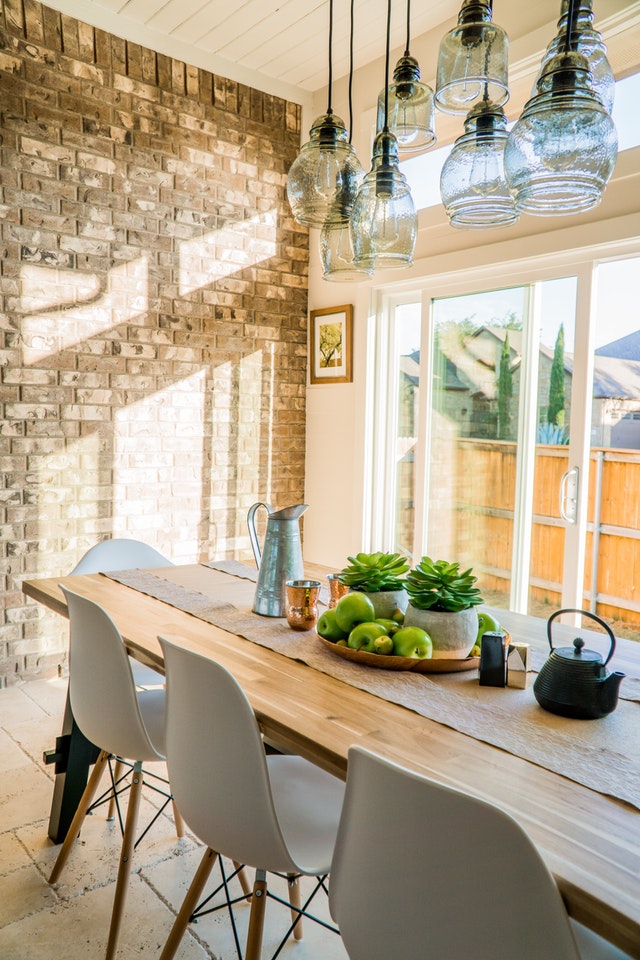 The success of your real estate ventures depend on your ability to navigate the financial world. Learn these terms to make it easier to understand what’s going on with your real estate investments.
The success of your real estate ventures depend on your ability to navigate the financial world. Learn these terms to make it easier to understand what’s going on with your real estate investments.
Cash Flow
Contrary to popular belief, cash flow isn’t just the amount of liquid assets you have available. Your cash and unused lines of credit are an essential indicator of your ability to complete projects and pay the cost of ongoing operations. However, these factors don’t tell the whole financial story.
Your actual cash flow is the difference between your gross income and your financial obligations. You can have a large cash reserve but still have a negative cash flow if you aren’t making enough to cover your obligations.
Gross Yield
When evaluating potential properties, it’s helpful to understand the gross yield. To calculate gross yield, divide the annual income you expect the property to produce by the property’s price. This number comes in handy for comparing properties and narrowing down your options.
Amortization
Lending institutions offer a variety of loan structures to fit your goals and financial standing. An amortized loan features a set amount of interest. This amount is integrated into each monthly payment. That means that borrowers are paying on the loan’s principal and paying down their interest liabilities from the very first payment.
Amortization is an excellent way to quickly build equity. This enables real estate investors to use existing properties to fund other projects without having to sell off their holdings.
Carrying Costs
Flippers and other short-term real estate investors need to keep a close eye on their carrying costs. These are all the expenses incurred after the initial purchase and before the property is sold for profit. Carrying costs include mortgage and interest payments, utility bills, taxes, and insurance.
The best way to limit carrying costs is to flip your property as quickly as possible. However, sudden changes in the market, illness, and other unexpected factors can prolong your need to make monthly payments. In this event, investors should carefully monitor their cash flow to ensure they don’t end up losing their entire investment.
Double Close
Wholesale home buyers often already have an exit strategy before signing on new properties. In this case, a double closing allows the wholesaler to purchase the property and sell it to a new buyer in a single transaction. This is also sometimes called a back-to-back closing.
Knowing these terms will make it easier for you to manage the financial details of your real estate investments. And partnering with a trusted real estate professional will make it easier for you to find just the right investment property.
 If you find it difficult to make ends meet, these tips will help you save money in ways that are easy to do and create substantial savings over time.
If you find it difficult to make ends meet, these tips will help you save money in ways that are easy to do and create substantial savings over time. Case-Shiller Home Price Indices reported the slowest rate of U.S. home price growth since November 2014. According to the 20-City Home Price Index, Home prices grew by 4.20 percent year-over-year and were 0.20 percent higher in December as compared to November. The 20-City Home Price Index fell short of analysts’ expected gain of 4.80 percent year-over-year. Case-Shiller’s National Home Price Index reported home prices increased 4.70 percent in the fourth quarter of 2018.
Case-Shiller Home Price Indices reported the slowest rate of U.S. home price growth since November 2014. According to the 20-City Home Price Index, Home prices grew by 4.20 percent year-over-year and were 0.20 percent higher in December as compared to November. The 20-City Home Price Index fell short of analysts’ expected gain of 4.80 percent year-over-year. Case-Shiller’s National Home Price Index reported home prices increased 4.70 percent in the fourth quarter of 2018. The real estate market and all the things involved in selling a home can seem complicated, and it can be very hard to know which tips to trust. While there’s plenty of great advice to go around from many knowledgeable sources, here are some of the best tips from home sellers who have made a successful sale.
The real estate market and all the things involved in selling a home can seem complicated, and it can be very hard to know which tips to trust. While there’s plenty of great advice to go around from many knowledgeable sources, here are some of the best tips from home sellers who have made a successful sale. After raising the target range for the federal funds rate in 2018, the Fed’s Federal Open Market Committee did not raise the Central Bank’s key interest rate at its meeting of January 29 and 30. While Committee members did not raise the Fed’s key rate, members were divided on the interest rate decision.
After raising the target range for the federal funds rate in 2018, the Fed’s Federal Open Market Committee did not raise the Central Bank’s key interest rate at its meeting of January 29 and 30. While Committee members did not raise the Fed’s key rate, members were divided on the interest rate decision. Bridge loans, which are also commonly referred to as interim financing, gap financing or swing loans, help a motivated home buyer to secure financing before their home or investment property sells. Lenders can usually modify these flexible loans to accommodate a person’s unique needs.
Bridge loans, which are also commonly referred to as interim financing, gap financing or swing loans, help a motivated home buyer to secure financing before their home or investment property sells. Lenders can usually modify these flexible loans to accommodate a person’s unique needs. Many new buyers start looking for homes in the spring. The question in 2019 is whether buyers can afford available inventory or want to buy given changes to the tax code and increase in natural disasters.
Many new buyers start looking for homes in the spring. The question in 2019 is whether buyers can afford available inventory or want to buy given changes to the tax code and increase in natural disasters.  Now that you have a beautiful new home with a garage, the fun of organizing can begin. When your garage is well organized, everything is much easier. You can get home projects finished faster, get out the door quicker and better enjoy all your sporting activities.
Now that you have a beautiful new home with a garage, the fun of organizing can begin. When your garage is well organized, everything is much easier. You can get home projects finished faster, get out the door quicker and better enjoy all your sporting activities. Your real estate agent will likely give you 24 hours’ notice before bringing over interested buyers to see your home. Sometimes eager buyers may request less of an advance, or even ask for a last minute showing.
Your real estate agent will likely give you 24 hours’ notice before bringing over interested buyers to see your home. Sometimes eager buyers may request less of an advance, or even ask for a last minute showing. Kids of all ages often have a hard time dealing with moving. They may not be able to understand why the family can’t stay in the same place forever. Even with explanations, children often can’t readily envision how amazing the new place will be.
Kids of all ages often have a hard time dealing with moving. They may not be able to understand why the family can’t stay in the same place forever. Even with explanations, children often can’t readily envision how amazing the new place will be.